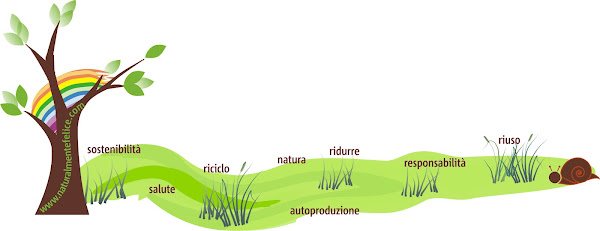"Documentario di Coline Serreau oltre il documentario "ecologista", mostra le recenti soluzioni a un'appropriazione della catena alimentare che è una minaccia incombente oltre che per la salute e il pianeta, anche per la libertà individuale e collettiva.
La regista s'incontra in tutto il mondo con persone che implementano le proprie soluzioni ai disordini ambientali.
Incontra: Vandana Shiva, Pierre Rabhi, Lydiae Claude Bourguignon, il Movimento Lavoratori Senzaterra, Kokopelli, M. Antoniets , Ana Pradeshi, Philippe Desbrosses, Joao Pedro Stedile, serge Latouche, Devinder Sharma, Laurent Marbot, ecc.
"Con questo film, mostro che ci sono in tutto il mondo, persone che, senza saperlo, fanno la stessa cosa, che hanno la stessa filosofia di vita e le usano le stesse pratiche con la Madre Terra. Evidenzia, l'universalità di soluzioni, così come la loro semplicità, questo è il vero scopo del film."
-Coline Serrau
La regista sottolinea l'analisi e la competenza, Soprattutto cerca di dimostrare, con esempi di coltivazioni alternative dal Brasile all'India, dalla Francia all'Ucraina, che le soluzioni alternative sono sostenibili e redditizie oltre che già state attuate.
In breve, che un'economia più equa è possibile e addirittura indispensabile, in relazione a salute e principi umanitari.
La sua dimostrazione pone in rilievo una condizione femminile che sfugge anche a tante attiviste femministe.
Dimostra che c'è un divario molto significante tra il popolo e i leader. Gli OGM sono l'esempio più eclatante.
Mette in guardia la popolazione mondiale, da un problema che ha ogni giorno nel piatto, ma che non si rende conto della enorme pericolosità che rappresenta nella sua globalità."
Think Global, Act Rural (original title: Solutions Locales pour un Desordre Global, "Local Solutions for a Global Disorder") is a French documentary about organic farming. It provides descriptions, warnings, and solutions - though how they can be applied on a large scale is not broached. The main speakers are scientists, activists, philosophers, and farmers. There are about a dozen of them who are identified in detail on the film's website. The most memorable images are of the many little bugs that invisibly activate healthy soil, and repeated demonstrations of how the look of plowed, chemically devastated soil differs in appearance and consistency from the looser, pliable "couscous" that is healthy arable ground.
The destruction of natural agriculture is a product of modern war. World War I was the beginning of the eradication of the peasant farmer. World Wars I and II led directly to the creation of chemical fertilizers and pesticides to recycle and continue marketing the materials developed by war industries, such as mustard gas. Essentially war on humans was converted to war on the environment. To sell these products farmers had to be convinced that what they always knew was wrong; that soil cannot enrich itself from natural means and seeds cannot germinate without artificial help.
Agriculture originally existed for subsistence. When it moved into mass production for urban populations who can't produce their own food, it converted to a factory model.
Now, a private farm goes out of existence in Europe every two minutes; hundreds of thousands of suicides have occurred in India due to the effects of the "Green Revolution." The "Green Revolution" comes later in the story, of course, but is the one big thing new students of this subject need to learn about. The "Green Revolution," which got a Nobel Peace Prize, is a neoliberal scheme that globalized the methods and products of agribusiness and caused and is causing worldwide destruction of the agricultural environment and the independent farmer's livelihood. It meant a massive industrialization of agriculture, involving the replacement of a multitude of indigenous crops with a few high-yielding varieties that require expensive investments of chemicals, fertilizers and machinery.
Literally the most down-to-earth experts in the film are Lydia and Claude Bourguignon. Lydia is a doctor in food engineering and Claude is an agronomist and doctor in microbiology. They left the French National Food Engineering Institute (INRA) because they disagreed with its thinking and they started their own lab for soil microbiology. Claude explains that deep ploughing and chemical fertilization together ruin the soil. Agribusiness methods are self-perpetuating. It ruins the soil and provides plants and conditions that are not self-sustaining, and then its products must be used, which in turn perpetuate the undermining of agriculture.
There have been other, American, documentaries that have described the role of corporations in this process. Bourguignon mentions that attempts were made to develop square eggs and square tomatoes, and we know that Monsanto has developed seeds and pesticides that depend on each other. When the "Green Revolution" took over poor countries, farmers were destroyed economically, sold their farms to pay their debts for buying fertilizers and non-self-sustaining agribusiness seeds, and are reduced to sharecropping on their own former property.
The last part of the film shows in rough outline how healthy organic farming is carried out. Examples of a Russian farmer and farming in India and Brazil are given. Think Global, Act Rural is a talky, no-nonsense documentary without a narrator or a grand message or fancy diagrams. It is just a few people talking and images of farming and soil. It has hardly any music. Some of the editing is jumpy. The version I saw was without titles or end credits. It is a piece of advocacy that presents essentially one point of view. No spokesmen for agribusiness or "Green Revolution" are heard from. Programmatic solutions aren't gone into: how do these local solutions become global? How can small farmers get started again? How do we feed growing urban populations with the methods of rural India?
Fonte/Source:
www.chrisknipp.com/writing/viewtopic.php?f=1&t=1699

ciao naturalmente felice, siamo Freyakosmetik, due giovani ragazzi che amano la natura mi piacerebbe averti tra i nostri membri il nostro blog è http://freyakosmetik.blogspot.it/ anche noi facciamo parte del tuo blog a presto e contattaci per qualsiasi cosa grazie Simona P.S. puoi trovarci anche su facebook all'indirizzo http://www.facebook.com/FreyaKosmetik
RispondiElimina